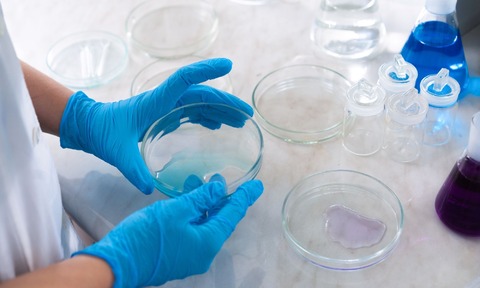Lab roundup: Automata-Crick partnership, EPSRC £2mill, Tetra-Pak milestone
15 Feb 2023

Genomics ramps up the automation, the chance to host a national research facility, a flow cytometry acquisition and more are among the latest business and R&D moves in the lab world...
Automata has announced a new partnership with the Francis Crick Institute’s Advanced Sequencing Facility to develop integrated automation for genomics sample preparation. The teams will automate three manual workflows to enable scalability and robust operation that aim to decrease manual aspects, increase throughput and provide enhanced R&D flexibility. Head of the Advanced Sequencing Facility Jerome Nicod commented: “We believe integrated automation is the path forwards in the field of genomics, and the results we have been seeing so far from the Automata platform support this. The major benefit of our walkaway workflows is the ability to prepare samples and generate data rapidly, accelerating the pace of discoveries at the Crick. This includes the validation of CRISPR genome editing, the extraction of genetic material from fixed tumour samples for cancer research and genomic surveillance of the COVID-19 pandemic.”
Cytek Biosciences has signed an agreement to acquire DiaSorin’s flow cytometry and imaging business unit., which contains more than 7,000 instruments. Cytek said the move will expand its product portfolio to include imaging and menu-based application driven flow cytometry, providing full cell analysis solutions to its customers.
The Engineering and Physical Sciences Research Council is offering up to £2million to support an X-ray photoelectron spectroscopy national research facility. Applicants must be based at a UK-based research facility eligible for EPSRC funding, demonstrate the ability to earn income from non-UK Research and Innovation (UKRI) sources, and outline how they would be financially sustainable at the end of the 5 year grant period.
Tetra-Pak and the MAX IV synchrotron radiation laboratory are collaborating on research in fibre-based sustainable food packaging that aims to produce fresh insights into the nanostructure of fibre materials, starting with optimising the composition of paper straws. The work will be R&D experiment at the lab’s ForMAX research station at its premises in Lund, Sweden. Paper based materials will need to combine sustainability with food safety and durability when handling liquids and humid conditions, say the firms. “The experiment conducted at ForMAX is a milestone for both academia and industry. The research station is the first of its kind and will facilitate both fundamental and applied industrial research on how new, sustainable materials can be used going forward,” commented ForMAX Manager Kim Nygård.
Molecular genetics diagnostic company Mainz Biomed has established commercial partnerships for ColoAlert with independent labs London’s Marylebone Laboratory and the Instituto de Microecologia in Spain, two leading independent laboratories covering England and Spain. ColoAlert, an at-home detection test for colorectal cancer is Mainz Biomed’s flagship product. The market for its use in Spain as a whole is put at 26 milion in Spain and 9 million for Greater London. Chief Commercial Officer Darin Leigh explained: “As we execute our commercial strategy, we are steadfast in aligning with laboratories who share our passion for bringing to market premier diagnostic tests that have the potential to dramatically impact the treatment and prevention of deadly diseases such as CRC, which remains the second most lethal cancer in Europe, and for which early detection plays a critical role in patient survival.”
Preclinical biotechnology company BiPER Therapeutics has raised a total of €1.25 million in seed funding. Sources include WiSeed and Bpifrance, plus €450k in grants as part of the i-Lab innovation award and from the Grand Est region. These funds finance work over 15 months, on the preclinical development of its lead program, BPR001, a first-in-class BiP inhibitor, for the treatment of gastrointestinal cancers, and bring it to the Clinical Trial Application and Investigational New Drug stages. It will also enable the company to advance its R&D programs in first-in-class Endoplasmic Reticulum (ER) stress inducers. There is an estimated 1 million gastric cancer cases worldwide and an annual projected increase of 2% in numbers.
Photonics technology company Hamamatsu Photonics has named Tadashi Maruno as Representative Director and President. Maruno has worked at the company for 40 years. Prior to this role, he has been Representative Director and Senior Managing Executive Office.
Pic: Ivan Samkov

